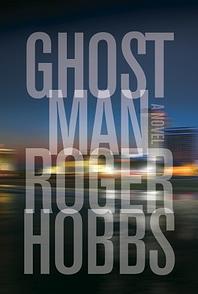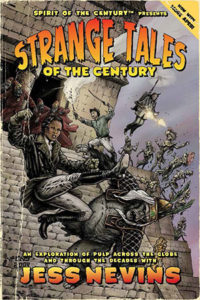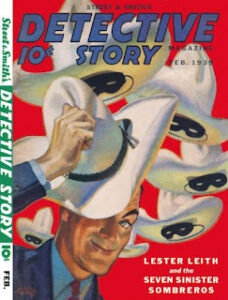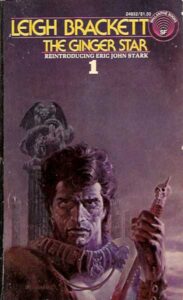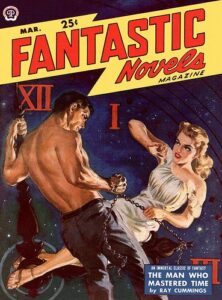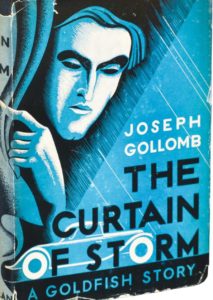- Publisher: Knopf; First Edition
- ISBN-10: 0307959961
- ISBN-13: 978-0307959966
Ghostman by Roger Hobbs is a breakout thriller novel that is also a New Pulp extravaganza.
There’s been much early press regarding the author who reportedly wrote this bare knuckle and brainy crime drama while graduating from Reed College in Portland, Oregon. Hobbs’s author photo offers us the image of a smartly dressed young man with the soft face and knowing gaze of a Botticelli portrait. No matter his youth, he had the audacity and flat out ability to mix a delicious cocktail of researched realism, imagined criminal tradecraft, polished prose, and crowd-pleasing escapism that succeeds as a contemporary crime thriller and an excellent example of the new breed of pulp fiction.
Get this for a premise: the protagonist and narrator is a nameless, record-less criminal whose specialty is helping criminals disappear. He’s been given less than 48 hours to “fix” a heist gone very wrong, find the missing loot, and deal with two vicious crime lords who have a genius for using common household materials in uncommon and horrific ways. All the while he’s being stalked by a canny F.B.I. agent. If you’re thinking to yourself, “Not bad”; that’s not the half of it.
The plotting is as spare and fast as a grey hound, while still providing the gritty details of the protagonist’s life as a career criminal. It has the feel of a very well done action movie and that may be no accident. That the novel includes a couple of car chases (always tough to do well in prose) and Jason Bourne style fight scenes makes me think that this is an intentional choice by Hobbs to expedite the novel’s transfer to the big screen. Smart move from an author who makes a lot of good decisions. It’s clear he knows the tastes of his target audience and that of the publishing world as well.
One doesn’t often see technically fine prose in thriller writing but Ghostman’s story structure is a thing of beauty; evocative and sleek, with just enough meat to satisfy but not enough to slow down the fun. There is a lot of to and fro-ing in the Atlantic City setting, so many cell phone conversations, a couple of well rendered car chase scenes, much exposition regarding criminal thinking or technique; and STILL the story is a raging page turner.
Crime fiction relies immensely on tone and Hobbs hits just the right notes with the first person narration of the main character, referred to by the alias “Jack Delton”. Delton’s voice is clear, matter-of-fact, and unemotional despite the intense situations he describes. It is the voice of a cypher: knowing and direct without any baggage. It’s the perfect voice for thriller fiction; smart and strong enough for the reader to connect with, but has few other elements that may interfere with the experience. It’s the voice of a ghostman. Hobbs sells the character with a voice that is so clean and accessible that it allows us to connect with this truly unusual anti-hero.
Besides the perfect tone the novel also features a totally cool protagonist who is completely effective at what he does. No matter the challenge or brutality he faces it quickly becomes clear that Delton has the skills and the resolve to meet it in spades. He is able to extricate himself from some bizarre and deadly situations through an application of his vast knowledge of underworld lore and some amusing (if brutal) tricks right out of the late movie. Not all of this is necessarily believable but it sure is fun.
It’s important to note that as much as the reader roots for Delton, a nice guy he is not. He’s a career criminal who regularly points heavy weaponry at civilians to make them give him money. Sure, he has a code: he doesn’t kill unless “he has to”. An interesting claim considering he’s chosen a career which will consistently put him into situations where he’s going to have to kill somebody. Or, in the case of this novel, several somebodies. Nonetheless he does make attempts to limit collateral damage and in the course of this novel he only kills guys who are worse than he is. And right there is the trick to creating an anti-hero you can get behind: he may be bad but he’s better than the guys he’s fighting, so get behind him you will, almost immediately. That we accept this amazing, conflicting character, through Delton’s voice and the sheer bravura of the technical detail, is a testament to Hobbs’s ability as a story teller.
Delton is a ‘ghostman’ a term that refers to the member of a heist team whose job it is to ensure that all of the criminals can disappear after a crime has been committed, in other words to make sure they get away with it. That specialization in an era of computer surveillance and ubiquitous digital exposure is almost a super power. Who doesn’t want to be able to slip past the closed circuit cameras and through any countries’ borders, to live a life of freedom away from the world’s computerized gaze?
This is one of the novel’s strongest nods to its pulp predecessors. Ghostman is a master of disguise and able to blend in and fade away, as much as any Secret Agent X, Phantom Detective, or Shadow. Also intriguing is the character’s statement that he doesn’t do what he does for money or “security”. He does what he does because, like Sherlock Holmes, he can’t stand being bored. Putting his skills to the test in these astonishingly dangerous and oddly artistic ways fills his life with a sensation and intensity that it otherwise wouldn’t have. He’s a thrill junkie artist who has trained himself to do the seemingly impossible and you want to know just what amazing thing he’ll do next. Jack Delton is a pulp hero, plain and simple.
Another facet of Delton’s character is his interest in classical literature; at one point he jokingly uses the alias “Ulysses”, after the far traveling trickster hero who famously broke into a walled and locked city with the Trojan horse gambit. This is the type of characteristic that thriller protagonists have in lieu of a history, it’s a fascinating detail that doesn’t pull the character into the mundane world but helps the reader imagine them.
Along with this intriguing character comes a goldmine of specific esoteric information regarding real and imagined criminal trade craft (I lost track of how many cell phones were dismantled so that Delton wouldn’t be traced). Hobbs clearly did his research, not just on the technical aspects of being a bad guy but also on how to tell this kind of story. And that research paid off. Even if some of the insider’s view into the criminal world is made up or exaggerated, it’s what we want to believe. We want to believe in the tropes of a caper story, the secret world of master criminals, and Hobbs obviously knows that, just as he knows how to tell a riveting story.
Ghostman is a strong debut from an already accomplished new voice, and it’s crackling with the kind of energy and heat that made the pulps great.
